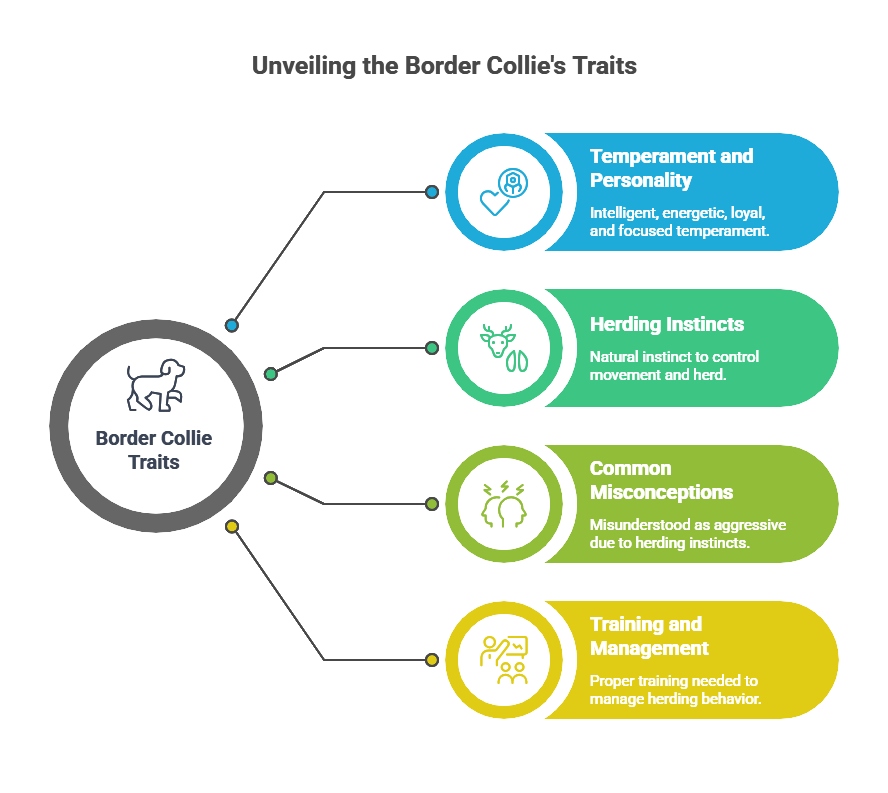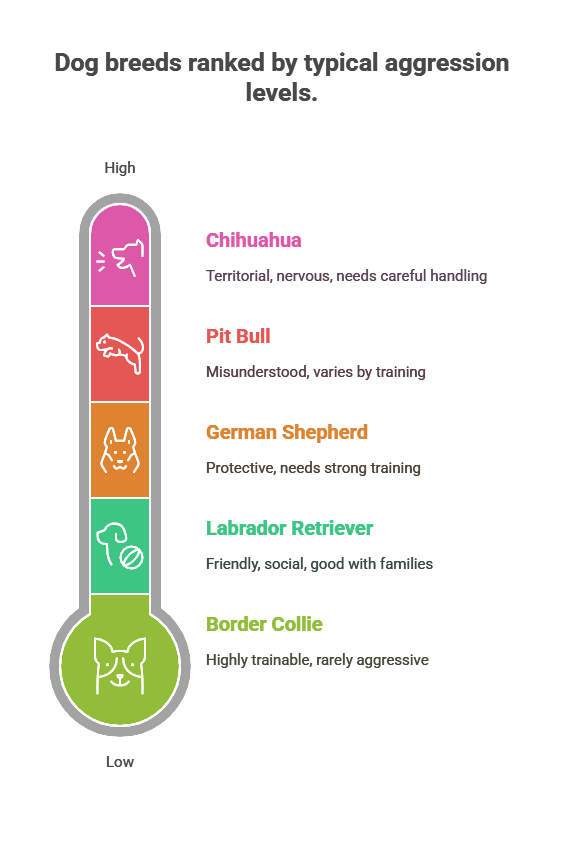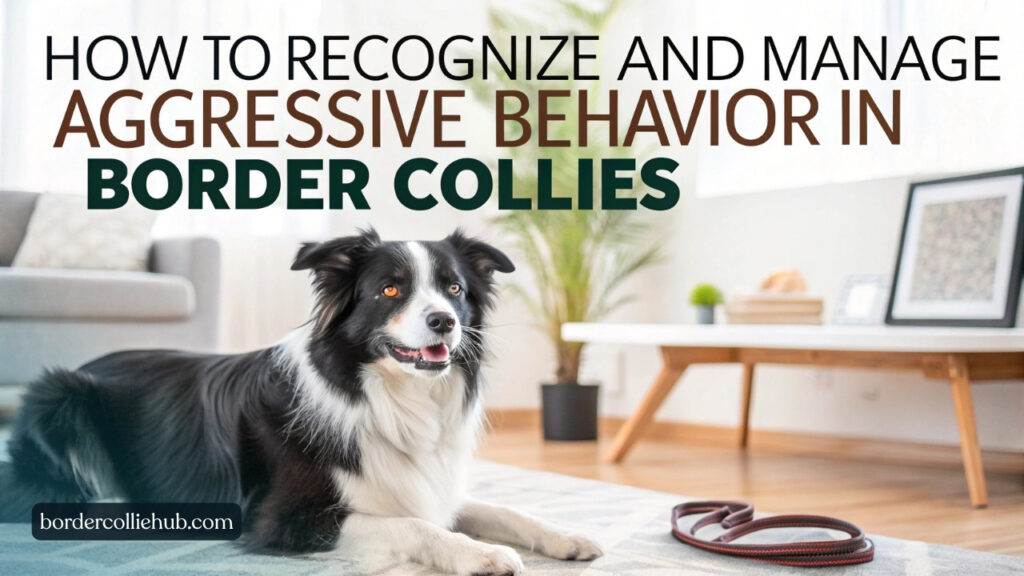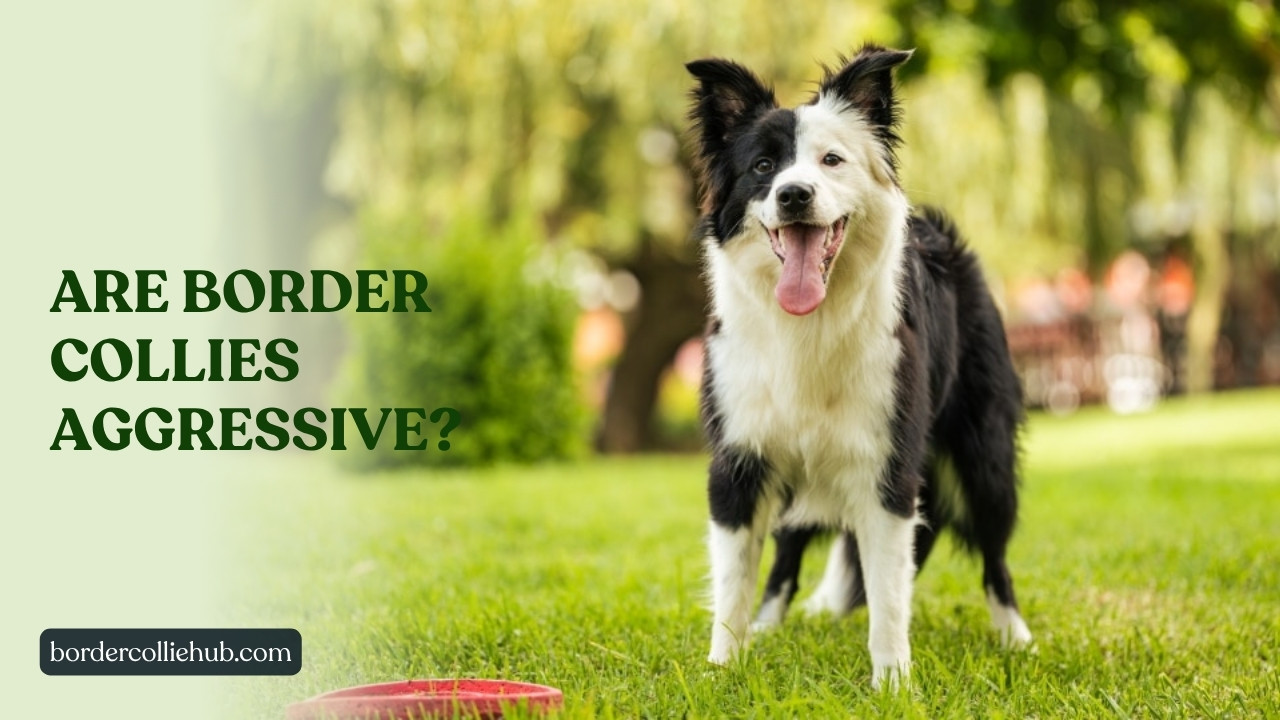Border Collies are not naturally aggressive. They are intelligent, energetic dogs known for their strong work drive and loyalty. With proper training and socialization, they make friendly and well-behaved pets.
Many people wonder if Border Collies can be aggressive because of their intense energy and herding instincts. This question is common, especially for those thinking about adopting or living with one. It can be confusing and a bit worrying if you don’t understand the breed’s behavior well. You’re in the right place to get clear, easy-to-follow answers about Border Collie temperament. In this article, we’ll explore why Border Collies act the way they do, when aggression might occur, and how you can manage their behavior. Let’s walk through each point with real examples and expert tips.
What Are Border Collies Like?

Border Collie Temperament and Personality
Border Collies are known for their intelligence and high energy. They are hardworking dogs bred to herd sheep, which means they have a natural instinct to control movement. This makes them very alert and focused. Their energy levels are high, and they need plenty of exercise to stay happy and healthy. Border Collies are loyal and often form strong bonds with their owners. They enjoy having a job to do, which helps keep their minds busy and reduces unwanted behaviors.
Their herding instinct can sometimes be mistaken for aggressive behavior. For example, a Border Collie may try to herd children or other pets by nipping at their heels. This is normal but can be controlled with proper training and guidance. Understanding their natural traits helps owners manage their behavior effectively.
Common Misconceptions About Border Collies
Many people think Border Collies are aggressive because of their intense focus and active nature. However, this is a misunderstanding. Their behavior is usually driven by their work instincts rather than aggression. Aggression means hostile or violent behavior, but Border Collies are generally friendly and gentle when well cared for.
Some confuse their protective instincts or cautiousness with aggression. For instance, if a Border Collie senses danger, it might bark loudly or act alert. This behavior is meant to protect their family, not to attack. Knowing the difference between alertness and aggression is key to understanding this breed better.
Are Border Collies Aggressive Naturally?
Scientific and Expert Insights on Aggression in Border Collies
According to dog behavior experts, Border Collies rank low on the aggression scale. The American Temperament Test Society reports that Border Collies have a high passing rate on temperament tests, showing they are stable and friendly dogs. Aggression in any breed usually comes from fear, pain, or poor socialization rather than genetics.
Border Collies are sensitive dogs that respond well to kind and consistent training. Their intelligence allows them to learn commands quickly, which helps prevent problematic behaviors. When aggression does appear, it is often linked to environmental factors or health problems rather than the breed’s nature.
When Can Border Collies Show Aggressive Behavior?
Border Collies might show aggressive behavior if they are stressed, scared, or not properly socialized as puppies. For example, a dog that was isolated from people and other animals early on may feel threatened in new situations. Pain or illness can also cause a normally calm dog to become irritable or aggressive.
Protective behavior is another reason a Border Collie might act aggressively. They may guard their family or property, especially if they sense a stranger as a threat. This kind of aggression is usually controllable with training and socialization. Understanding the cause of aggression is the first step in managing it effectively.
Border Collies Compared to Other Dog Breeds

Aggression Levels in Border Collies vs Common Breeds
Here is a comparison of aggression levels between Border Collies and some popular dog breeds. This table is based on temperament test results and expert assessments:
| Breed | Aggression Level* | Notes |
|---|---|---|
| Border Collie | Low | Highly trainable, rarely aggressive |
| German Shepherd | Moderate | Protective, needs strong training |
| Chihuahua | Moderate to High | Can be territorial and nervous |
| Labrador Retriever | Low | Friendly and social, good with families |
| Pit Bull | Moderate to High | Often misunderstood, varies by training |
*Aggression Level refers to typical tendencies, not individual dog behavior.
Best Dog Breeds for Families Concerned About Aggression
Families who worry about aggressive dogs often look for breeds known for gentleness and friendliness. Labrador Retrievers, Golden Retrievers, and Cavalier King Charles Spaniels are among the most recommended family dogs. Border Collies also fit well into family life, especially for active homes that can meet their exercise and mental stimulation needs. They are less aggressive than many watchdog breeds but require proper care and training.
How to Recognize and Manage Aggressive Behavior in Border Collies

Signs of Aggression vs Normal Alertness
Border Collies are naturally alert and attentive dogs. Knowing the difference between normal alertness and aggression is key for owners. Alert behavior includes focused staring, raised ears, and barking to warn of strangers or unusual noises. These signs are protective but not aggressive. Aggression, however, involves growling, snapping, showing teeth, or lunging. Body language such as stiff posture, raised hackles, and direct staring may also signal aggression.
Understanding these cues helps prevent misunderstandings and allows early intervention. For example, a Border Collie barking to alert you of someone at the door is different from one growling at a family member during play. Learning dog body language through resources like the American Kennel Club’s guide can improve your ability to read your pet’s mood.
Training and Socialization Tips to Prevent Aggression
Training and socialization are essential to preventing aggressive behavior in Border Collies. Early socialization means exposing puppies to different people, animals, and environments. This helps them feel comfortable and reduces fear-based aggression. Positive reinforcement training encourages good behavior by rewarding commands with treats or praise, building trust and cooperation.
Regular mental and physical exercise is also important. Border Collies have high energy and intelligence. Boredom or frustration can lead to undesirable behaviors, including aggression. Activities like agility training, fetch, and obedience classes keep their minds sharp and bodies active.
Avoid harsh punishments, which can increase fear and aggression. Instead, focus on consistent, kind, and clear communication. Resources like the ASPCA’s training tips provide practical advice.
When to Seek Professional Help
If a Border Collie shows persistent or dangerous aggressive behavior, professional help is needed. A certified dog trainer or veterinary behaviorist can assess the situation. They can identify underlying causes like anxiety, pain, or trauma. Professional training plans are tailored to the dog’s needs and help owners manage and reduce aggression safely.
Early intervention is important to prevent worsening behavior. Consult your veterinarian if you notice sudden changes in behavior, as medical issues may be involved. The American Veterinary Medical Association offers guidance on recognizing signs that require expert help.
Border Collies Compared to Other Dog Breeds
Aggression Levels in Border Collies vs Common Breeds
Here is a table comparing typical aggression levels among popular dog breeds based on expert studies and temperament tests:
| Breed | Typical Aggression Level | Notes |
|---|---|---|
| Border Collie | Low | Intelligent and trainable; low aggression |
| German Shepherd | Moderate | Protective; requires strong training |
| Chihuahua | Moderate to High | Can be territorial and nervous |
| Labrador Retriever | Low | Friendly and social |
| Pit Bull | Moderate to High | Varies greatly; training affects behavior |
Border Collies tend to rank low in aggression compared to many breeds. Their natural intelligence and eagerness to please often help prevent aggressive behavior when trained properly. German Shepherds and Pit Bulls can have moderate to high aggression levels depending on training and environment. Understanding these differences helps families choose the best pet for their lifestyle.
Best Dog Breeds for Families Concerned About Aggression
Families worried about dog aggression often look for breeds known for gentle and friendly nature. Labrador Retrievers and Golden Retrievers are top choices due to their calm temperaments and social skills. Cavalier King Charles Spaniels and Beagles are also known for being family-friendly.
Border Collies can also be great family dogs if given enough activity and training. They are less aggressive than watchdog breeds and are loyal companions. It is important to meet their mental and physical needs to avoid behavioral issues. For detailed breed comparisons and family dog advice, visit the American Kennel Club’s breed selection guide.
FAQs About Border Collies and Aggression
Are Border Collies good with children?
Yes, Border Collies are generally good with children, especially when socialized early. They are protective and playful but need supervision around very young kids due to their herding instincts.
Can Border Collies be aggressive toward strangers?
They may be cautious or bark at strangers but are not naturally aggressive. Proper socialization helps reduce fear or defensive behaviors.
How to handle a Border Collie’s herding instincts without aggression?
Provide training and safe outlets for herding behaviors like agility or fetch. Redirect nipping by teaching gentle play.
What age do Border Collies calm down?
Border Collies mature around 2 to 3 years old. With consistent training, their energy and focus improve over time.
Conclusion
Border Collies are not naturally aggressive dogs. They are intelligent, loyal, and energetic, with behavior shaped largely by training and socialization. When properly cared for, they show low levels of aggression and make excellent family pets. Understanding their herding instincts and meeting their exercise needs helps prevent behavior problems. With patience and the right approach, Border Collies can be gentle, well-behaved companions who fit well into active households. Responsible ownership and early socialization are the keys to a happy, balanced dog.
